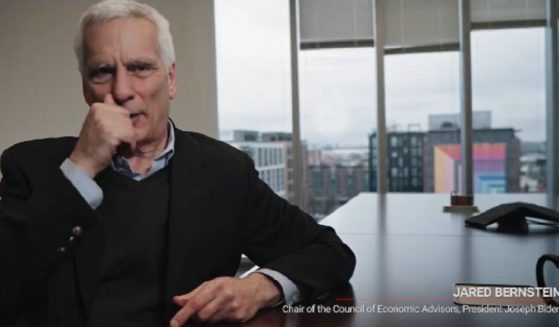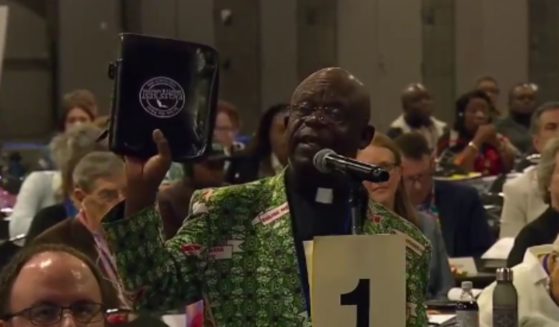Role States Played During COVID Prepared the Country for End of Roe v. Wade
The COVID-19 pandemic preceding the apparent imminent demise of Roe v. Wade seems almost providential.
For decades, more and more power has been accumulated by the federal government, but in a surprising way, states really took the lead in people’s day-to-day lives during the past couple of years.
Former President Donald Trump’s administration set the tone by recognizing that under our constitutional republic, the states possess the police powers, which encompass the health, safety and welfare of their citizens.
So when a pandemic reached the nation’s shores, the primary policy-making decisions would happen at the state level, with the federal government — which possesses only certain enumerated powers — playing a backup role.
All Americans saw how this played out with vast differences in state COVID policies in states such as New York and California versus Florida and Texas.
Other states fell somewhere in between with how restrictive they were in enforcing policies such as mask mandates and lockdowns.
Now abortion policy is front-and-center.
According to the leaked Supreme Court opinion draft by Justice Samuel Alito that Politico reported on Monday, the Supreme Court is poised to strike down the 1973 Roe v. Wade case that legalized abortion nationwide.
If Roe does end, state law once again would take the fore.
The case the court is considering is Dobbs v. Jackson Women’s Health Organization regarding a Mississippi law that bans abortions after 15 weeks, i.e., four months into the pregnancy.
Other states have enacted laws that ban abortions after a heartbeat is detected in the unborn child, somewhere around five or six weeks.
And on the extreme are states such as New York and Colorado that allow late-term abortions.
The New York Times reported that 13 states have trigger laws that would ban abortions if Roe were overturned.
All of these states make exceptions to the ban if the life or health of the mother is in danger, the outlet pointed out.
Five other states still have pre-Roe bans on the books that would come back to life.
So just as states handled the issue of COVID differently, states would handle abortion in different ways.
This is how it’s meant to be in our constitutional republic, Alito argued in his draft opinion.
“At the time of Roe, 30 states still prohibited abortion at all stages at all stages. In the years prior to that decision, about a third of the states liberalized their laws, but Roe abruptly ended the political process,” he wrote.
“It imposed the same highly restrictive regime on the entire nation, and it effectively struck down the abortion laws of every single state,” Alito added.
“It is time to heed the Constitution and return the issue of abortion to the people’s elected representatives,” he contended.
Alito then quoted from the late Justice Antonin Scalia’s opinion in Planned Parenthood v. Casey (1992), in which the originalist jurist concurred in part and dissented in part with the majority ruling.
Casey upheld the central ruling of Roe legalizing abortion nationwide but recognized that states have the power to place restrictions and regulations regarding the practice.
“The permissibility of abortion, and the limitations, upon it, are to be resolved like most important questions in our democracy: by citizens trying to persuade one another and then voting,” Scalia wrote.
Amen.
COVID, of course, has caused much hardship and heartache, but a silver lining is that Americans better understand our constitutional republic and the proper role states should play in deciding the law related to abortion.
Truth and Accuracy
We are committed to truth and accuracy in all of our journalism. Read our editorial standards.












